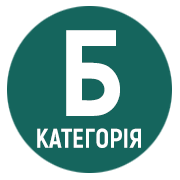Aesthetics and politics in A. France novel "The gods are athirst"
DOI:
https://doi.org/10.31494/2412-933Х-2018-1-6-27-35Keywords:
Novel about the artist,Abstract
This research devoted to artistic means of representing the relations between socio-political and aesthetic concepts in the French Revolution of 1789-1794 period in the novel by A. France "The Gods Are Athirst" ("Les Dieux ont soif", 1912). The aesthetic canons of a particular society are influenced by numerous factors at a certain historical moment and in the periods of large-scale social shifts, policy has a decisive influence. The Great French Revolution, as a radical "transition from one model of nation to another", "led to the rapid transfer of sacrality from the monarchy to the national, from the religious to the political, from the divine to the historical" (P. Nora). A peculiar correlate with the mindset of society in the pre-revolutionary period was the new classicism of the eighteenth century. - "third-strata" (B. Gayman), oriented to serve society as a collective of citizens, ideals of freedom and justice. Due to the affinity of the ideological vectors of the socio-historical movement and the new classicism, the latter, having acquired the form of "French revolutionary classicism" (D. Nalyvayko) in 1789-1794, took over the role of the "tribune" in the political struggle. "The Gods Are Athirst", being a political novel, is also a "novel about the artist" (N. Bochkarev), a characteristic feature of which is a combination of real life markers with art markers and the presence of a hero-artist who creates in the chronotope of culture. A. France, visualizing in the novel an alloy of aesthetics and politics during the Great French Revolution, uses two artistic tools: it carefully elaborates the "aesthetic" background of political events (artistic details become markers of revolutionary changes in the life and consciousness of society) and creates a distinct image of the artist- " politics "(through the prism of the consciousness of Evarist Hamlen - the artist and judge of the Tribunal - the process of establishing new aesthetic canons in society under the influence of politics is reproduced). This image of the artist-ideologist in the novel, combining art-study discourse and active political position, allows us to represent the foundations of French revolutionary classicism as an example of an inextricable combination of aesthetics and politics.
References
Бочкарева Н. С. Роман о художнике как “роман творения”. Генезис и поэтика. – Пермь: Изд-во Пермского ун-та, 2000. – 225 с.
Вжосек В. Історія – Культура – Метафора. Постання некласичної історіографії; Про історичне мислення : монографія / Войцех Вжосек; пер. з польськ. В. Сагана, В Склокіна, С. Сєрякова; наук. ред. А. Киридон, С. Троян, В Склокін. – К.: Ніка-Центр, 2012. – 296 с. – (Серія “Ідеї та Історії”; Вип. 7).
Выготский Л. С. Психология искусства / [Под ред. М. Г. Ярошевского] / Л. С. Выготский. – М.: Педагогика, 1987. – 344 с.
Дынник В. Сатирик в поисках социальной правды / Франс А. Преступление Сильвестра Бонара. Остров пингвинов. Боги жаждут [пер. с фр.] / Анатоль Франс. БВЛ, Т. 193. – М.: Художественная литература, 1970. – С. 5–29.
Наливайко Д. С. Искусство, направления, стили. – К. : Мистецтво, 1980. – 288 с. – Библиогр.: с. 278 – 280.
Нора П. Теперішнє, нація, пам’ять / П’єр Нора; пер. із фр. А. Репи. – К. : ТОВ “Видавництво “КЛІО”, 2014. – 272 с.
Франс А. Боги жадають / Анатоль Франс. Твори в п’яти томах, Т. 4. – Київ: Дніпро, 1977. – С. 353 – 536.
Шахова К. Боги жадають. Коментарі / Франс А. Твори у 5 т. Т. 4 [пер. З фр.]. – К.: Дніпро, 1977. – С. 568-590.






